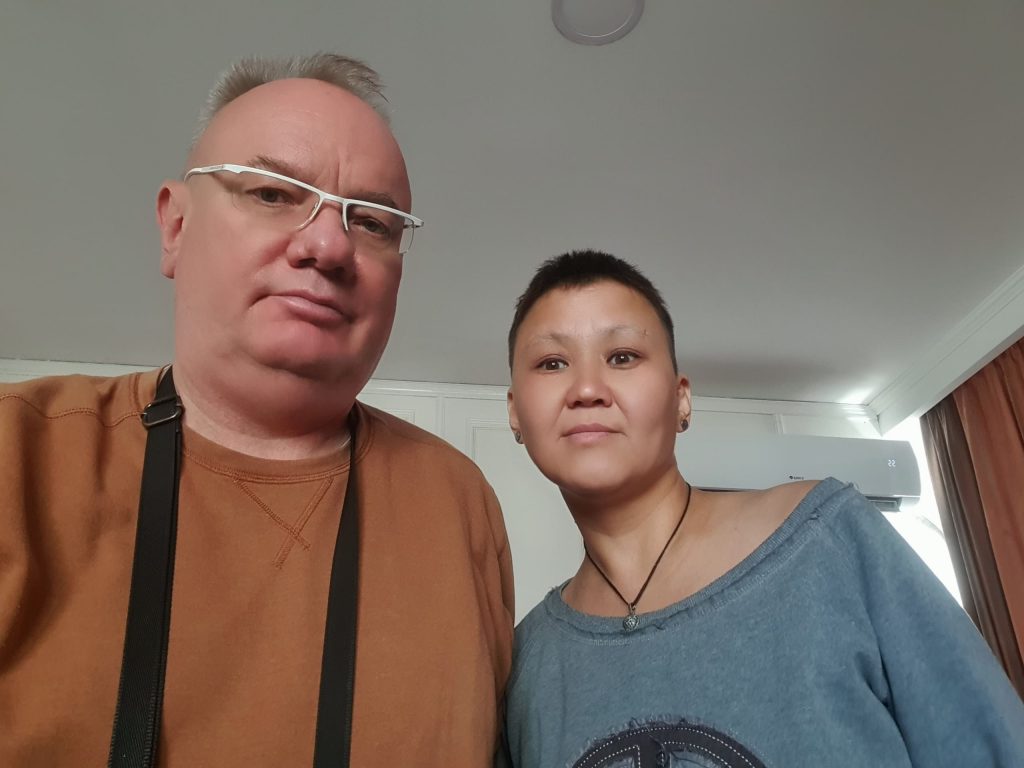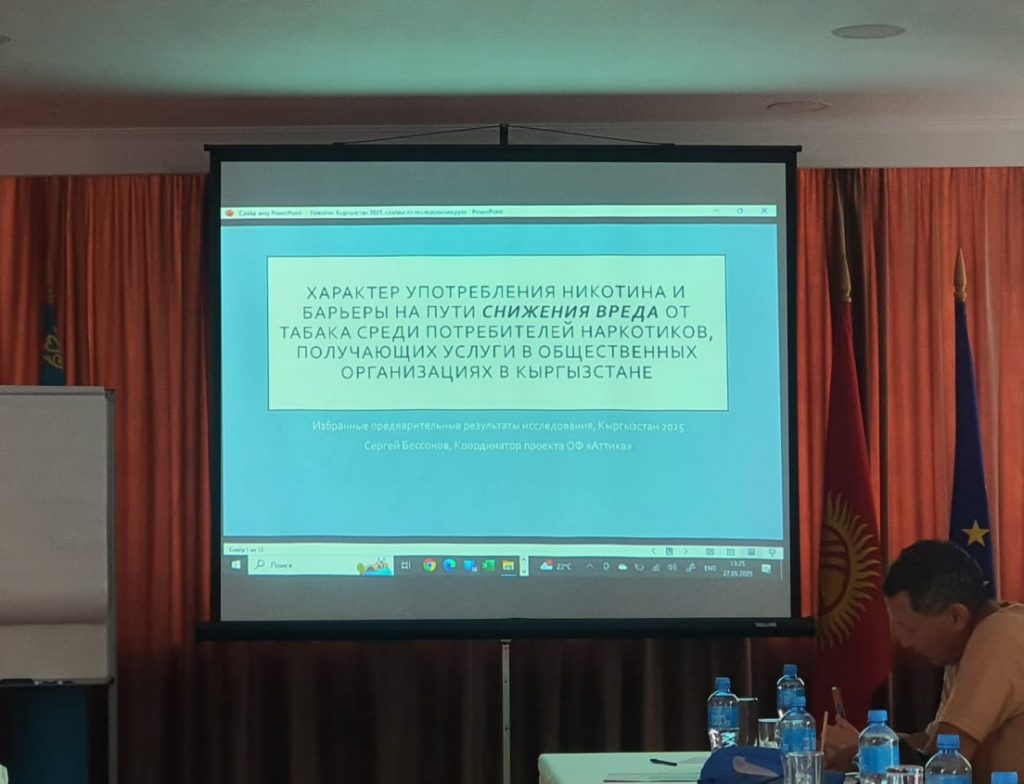
In Kyrgyzstan, most of current tobacco consumers use combustible tobacco products. Additionally, a local smokeless tobacco product, Nasvay is being used. However, the most recent data on tobacco use in the country dates back to the 2013 WHO STEPS survey, indicating a significant knowledge gap regarding current patterns and emerging alternatives.
While evidence highlights the efficacy of safer nicotine products (SNP) in reducing smoking rates in general populations, little research explores their adoption and effectiveness among drug users. High levels of smoking are reported among drug users in treatment, and there are high levels of tobacco-related diseases among drug users in recovery. Globally, this population faces compounded barriers, including stigma, addiction, and socioeconomic challenges, making targeted research essential. Treatment and advice are not routinely provided to drug users accessing treatment and harm reduction services. Little is known about the knowledge and attitudes of drug treatment staff regarding smoking, smoking cessation and tobacco harm reduction (THR). Additionally, gaps remain in understanding how behavioural, cultural, and social factors influence SNP adoption in these populations and how THR can be integrated into harm reduction programs, and the research focused in filling the gap.
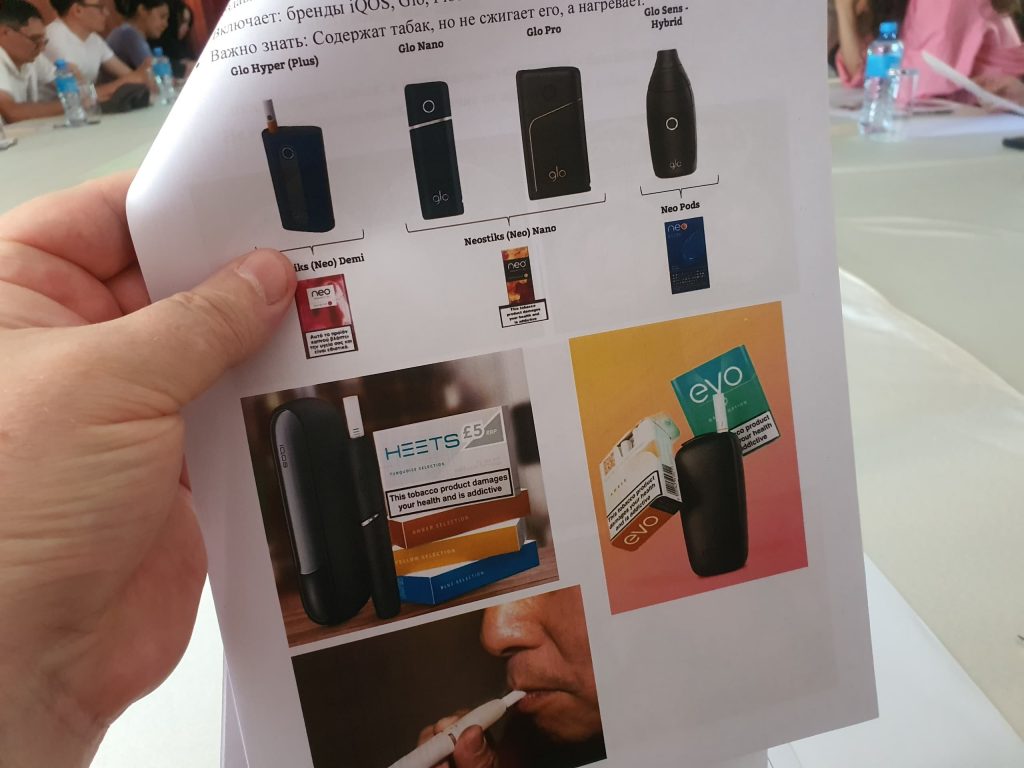
The research was implemented by “Knowledge Action Change” that is a London-based public health agency committed to reducing health risks by promoting scientific, evidence-based approaches, particularly in tobacco harm reduction (THR).
Field activities were conducted by Attika NGO in April-May 2025 among people who use drugs living in Bishkek, Osh and surrounding areas.
The Attika NGO was established by people who use drugs and has been operating in Kyrgyzstan since 2007. With a record of diverse social projects, they have established strong partnerships with other NGOs in the country and international organizations.
The Attika provides counselling on safer substance use, sexual behaviour, HIV testing, psychological and judicial consultations and social support services to vulnerable people with different lived experiences, such as people who use drugs, including those on opioid agonist treatment and young users of new psychoactive substances; people living with HIV/ TB/ hepatitis, as well as people released from prison.
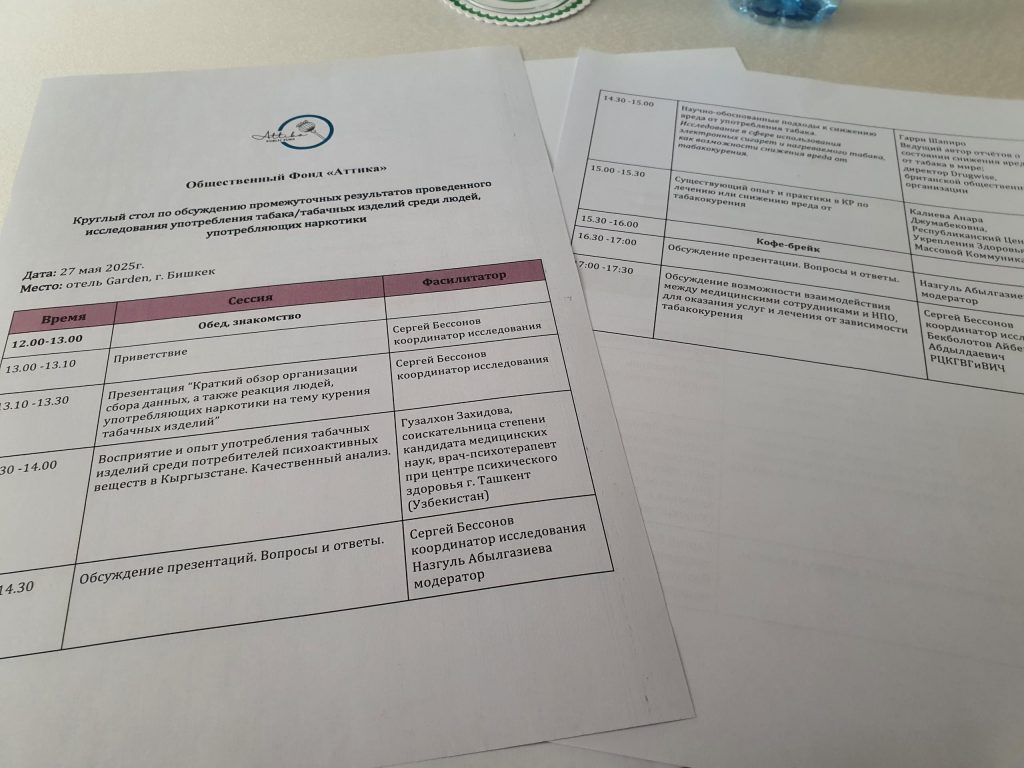
On May 27 the preliminary findings of the study were presented at the round table attended by the government officers, community leaders and civil society representatives. Presentations with overview of quantitative and qualitative findings were performed by Sergei Bessonov who is the Attika’s project coordinator, and Guzalkhon Zakhidova who is a Ph.D. student at Bukhara State Medical Institute and a psychotherapist at the City Psychoneurological Dispensary in Tashkent, Uzbekistan.
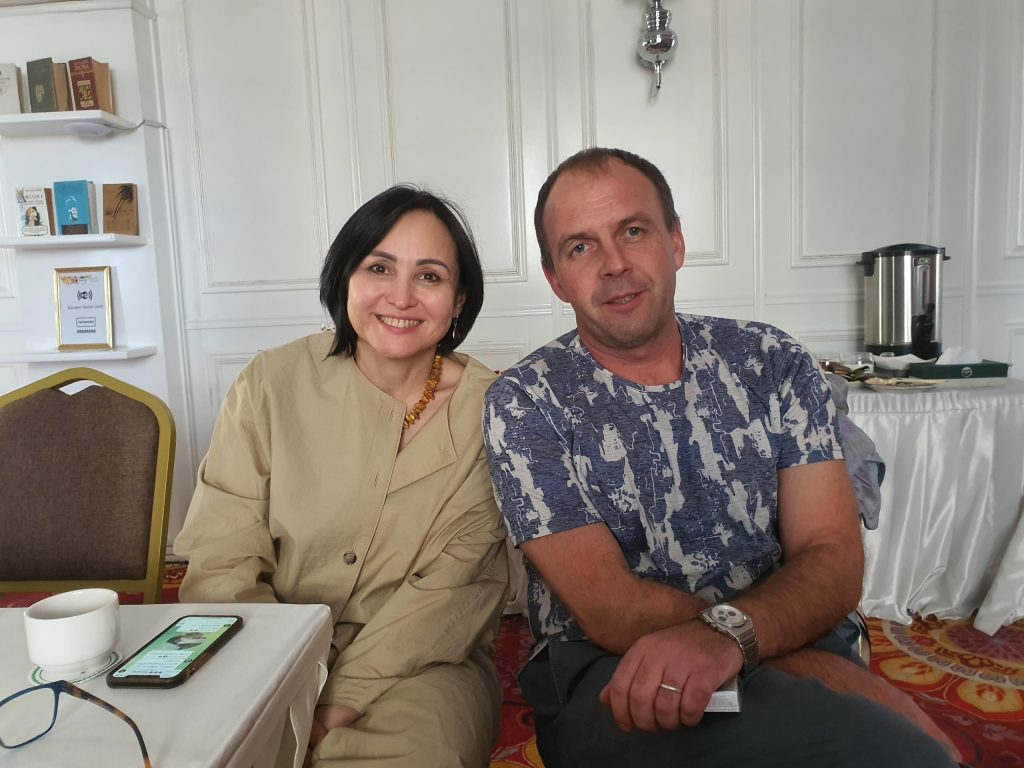
You can download presentation by Sergei Bessonov, in Russian, as a .pdf following the link below:
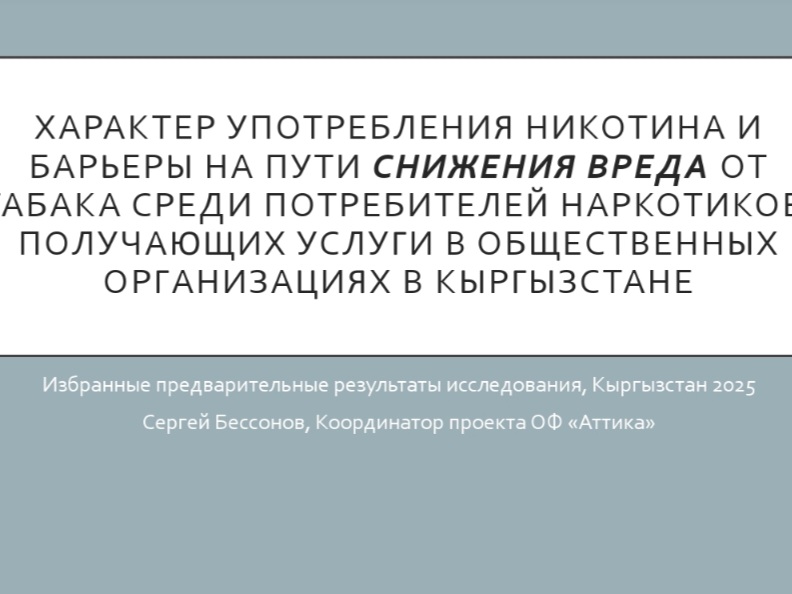
You can download presentation by Guzalkhon Zakhidova, in Russian, as a .pdf following the link below:
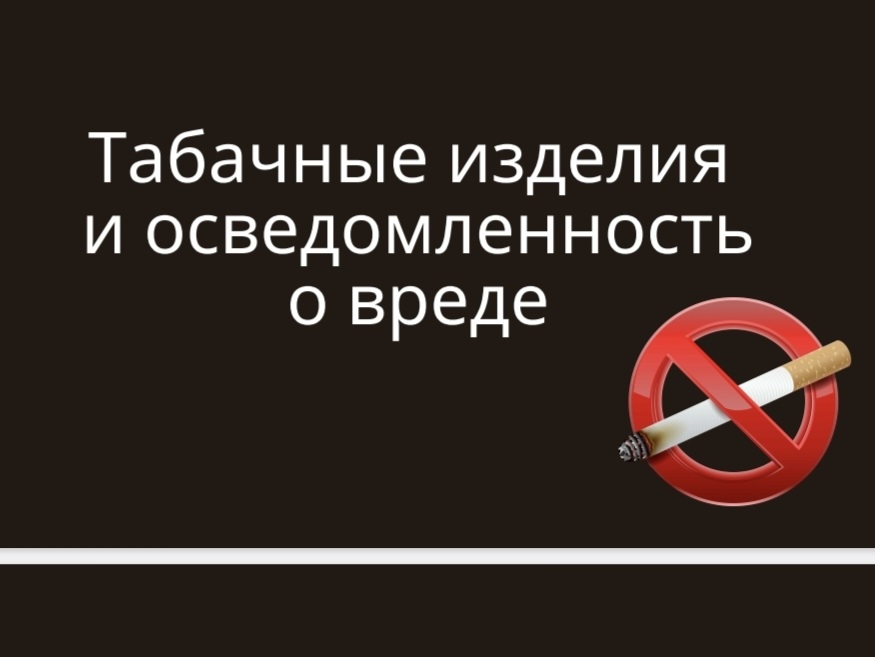
Dr Anara Kalieva of the Bishkek-based Republican Center for Health Promotion and Mass Communication shared information on Kyrgyz best practices on tobacco harm reduction and services available for people living with tobacco addiction willing to quit.
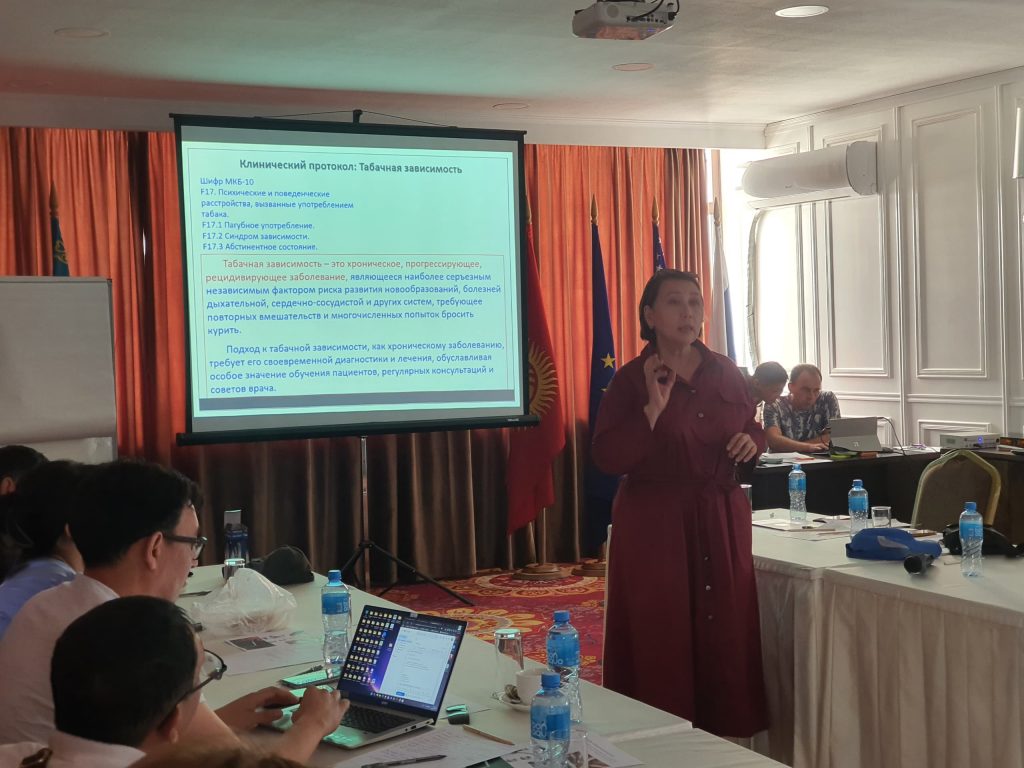
You can download presentation by Anara Kalieva, in Russian, as a .pdf following the link below:
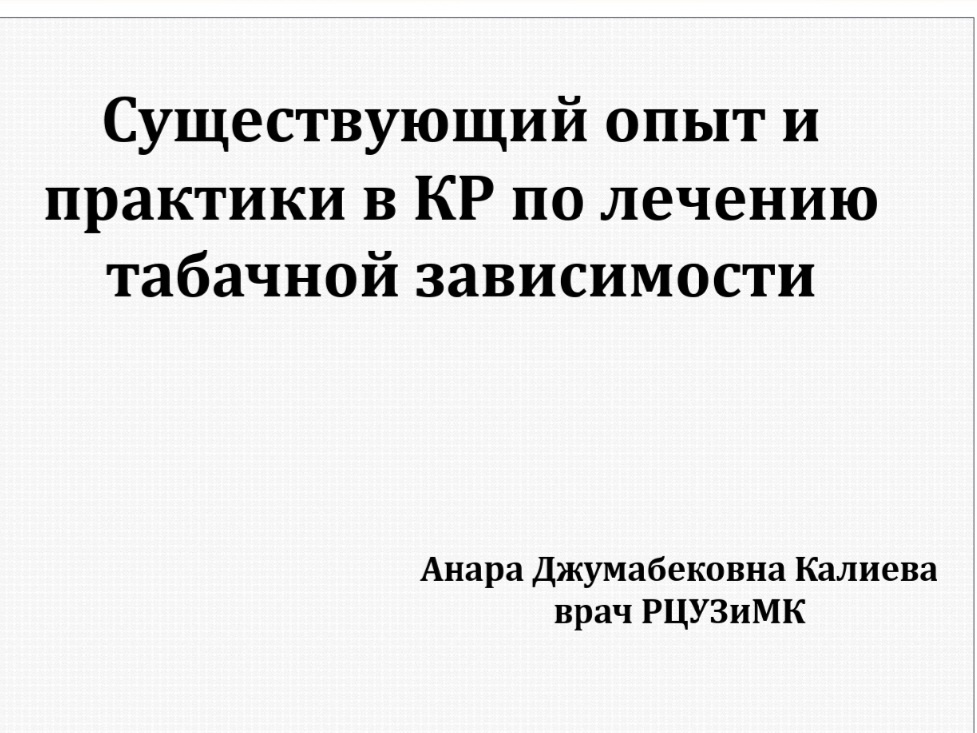
The on-line presentation was made by Harry Shapiro who is the director of UK-based DrugWise whose mission is to disseminate drug information which is topical, evidence-based and non-judgemental and to promote this through media work, public speaking and lecturing. He told of evidence-based approaches to reducing the harm from tobacco use, as well as best practices of using electronic cigarettes and heated tobacco as an opportunity to reduce the harm from smoking.
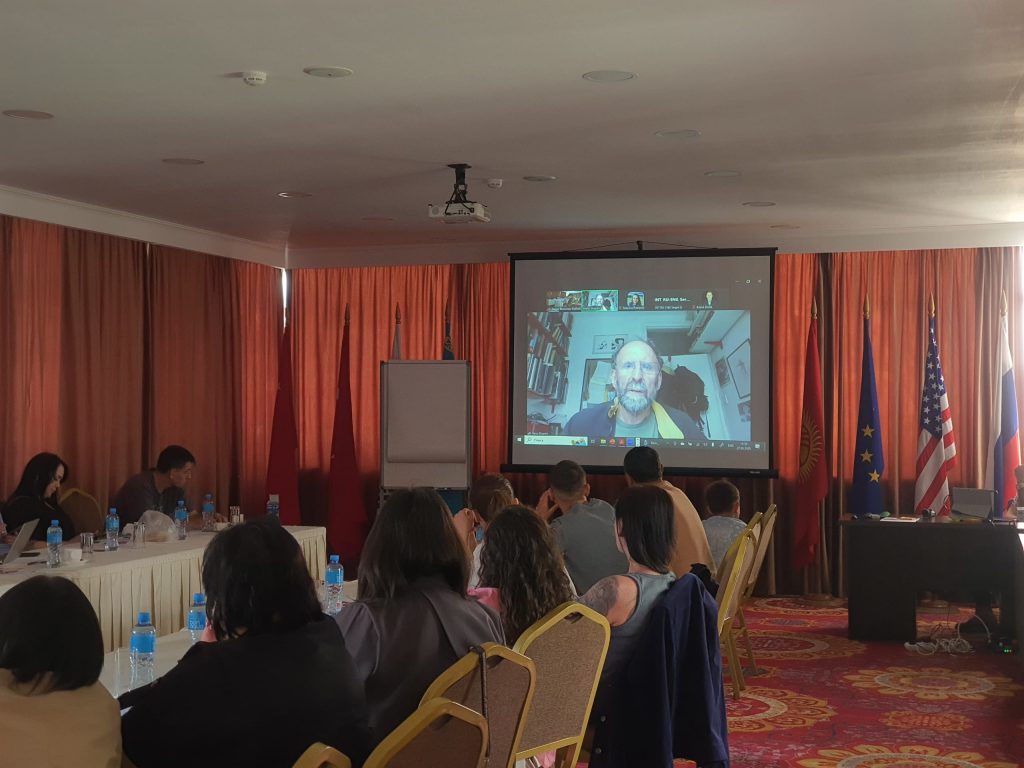
At the end of the presentations, it was emphasized that all the presented materials were preliminary – the collected quantitative and qualitative data are currently being carefully processed and will be used for preparation of exciting publications in peer-reviewed scientific journals.
The meeting was moderated by Nazgul Abylgazieva of Attika NGO.
